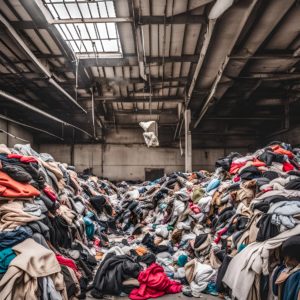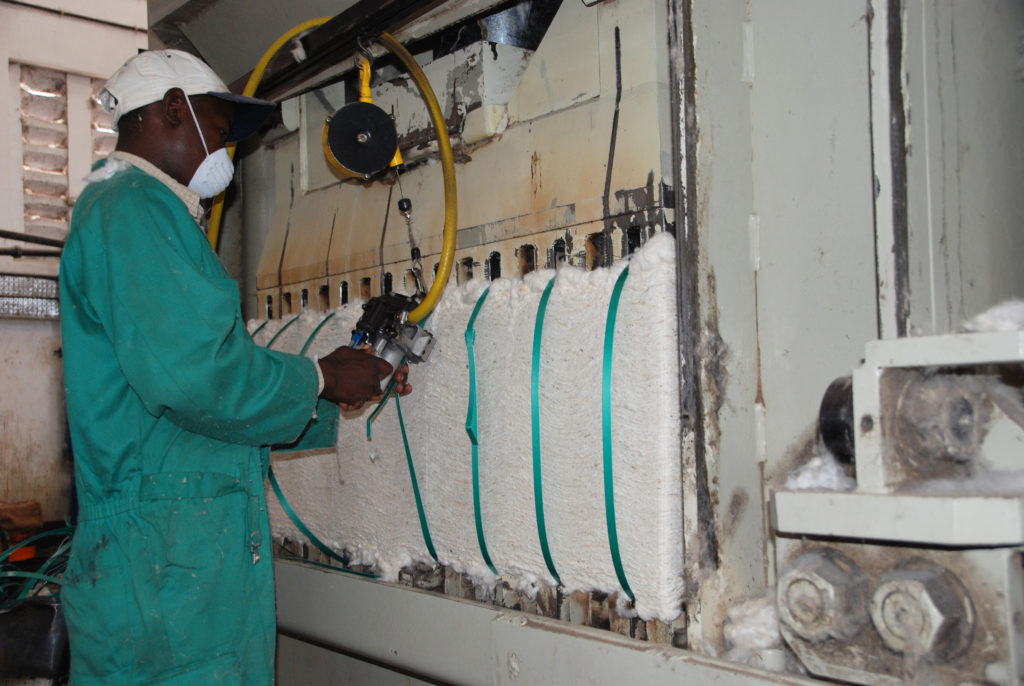The 37th International Cotton Conference Bremen will take place from 20 to 22 March 2024 with a top-class conference programme. The convention with visitors from the whole global cotton supply chain is well-known for its expertise and professional discussions at the highest level. The latest results of scientific research are combined with many years of practical experience. Event organizers are the Bremen Cotton Exchange and the Fibre Institute Bremen.
The programme of the 37th International Cotton Conference consists of 11 sessions with manifold lectures on-site as well as online via a conference platform.
New this time: The venue of the Cotton Conference will be the progressively designed Bremen Parliament House, also known as the ‘Haus der Bürgerschaft’ (Home of the Citizenry), located right at the marketplace and next to the Bremen Cotton Exchange.
Recycling: Opportunities and Limits

Discarded textiles – image by Pete Linforth on Pixabay
One of the most topical highlights will be a session analyzing the recycling of textiles made of cotton and blended fibres as part of the circular economy. It will be discussed whether and how the methods can make a productive contribution to the desired climate and resource-friendly economic processes.
But is this already possible today at the push of a button? The Cotton Conference provides answers with specialist presentations and evaluates tried and tested methods from a technical, economic, and ecological perspective. Here is an initial cross-section of topics:
Silke Huertos-Lopes from the leading globally operating technology company Saurer, Übach-Palenberg, Germany will give an overview of the possibilities of turning recycled material into yarn. Saurer is a specialist company for machinery, components and software to process staple fibres from bale to yarn.
Esther Rohleder from the Niederrhein University of Applied Sciences, Mönchengladbach, Germany, will talk about possibilities and limitations of recycling. Her focus lies on the recycling of mixed textiles made of polycotton and automated sorting systems required for this. Rohleder is also studying the quality of the resulting fibres and products in her research project. A considerable proportion is already used by downcycling to rags or insulating material, but the change towards a circular textile system adding value after the utilization phase is over and the necessary recycling circle is still at its beginning, according to Rohleder.

Card Sliver © Bremen Cotton Exchange
Stephan Baz from the DITF – German Institutes of Textile and Fiber Research Denkendorf, Germany, will present results from the research project ‘RezyCard’. The aim of the project is to increase the recycled fibre content of post-consumer cotton textiles in yarn production up to 50 percent. In Germany only about 21 percent of used textiles are currently recycled as “raw material”. This requires new approaches in production technology. Existing operating principles are being compared and improved on the key machine for fiber opening in the spinning mill, the card. However, the DITF points out in another context that the CO2 impact is many times higher compared to the conventional production of fibres due to the increased energy consumption and energy mix in the recycling process.
According to Michael Will from the Swiss machine company Rieter AG, Winterthur, the interest in using recycled fibres for the textile production is further increasing. The two main challenges in processing mechanically recycled fibres are the high short-fibre content and the high number of neps. Both parameters become particularly problematic when virgin cotton is used as a blending fibre. Depending on the quality, the virgin cotton can already have a high content of short fibres and neps itself, which can quickly limit the additional amount of recycled fibres that can be added to the blend. As a solution, Will presents the option of combing the recycled fibres – a standard process, which is already widely used in the industry for virgin fibres. His lecture will focus on answering questions about the performance on the comber, the recycling ratio of the blend, and about the quality of results.
Based on these examples, it quickly becomes clear that the conference enables a realistic assessment of trends and challenges.
Cotton Economics
Another highlight of the conference is the Cotton Economics session, which will focus on economic aspects of the global cotton market. Among other things, it will deal with shifts in international cotton trade due to changes in cotton cultivation and export patterns. The session will also focus on the importance and financing of regenerative cotton cultivation as well as key findings from 25 years of cotton production and processing in African countries.

Bale press in a Tanzanian gin © Velener Textil
Cotton week: Events in advance
In 2024 too, the Bremen Conference will be embedded in an entire cotton week, including a number of further events from Monday to Friday organised by important partners of the Cotton Exchange and highlighting the organisation’s international networking. On Tuesday, 19 March the Cotton Exchange, Fibre Institute Bremen (FIBRE), International Textile Manufacturers Federation (ITMF) and German Industry Association Finishing – Yarns – Fabrics – Technical Textiles (IVGT) will once again present the Textile & Spinners Seminar. Also, meetings will be held by the ITMF Cotton Testing Committee and several expert committees from the International Cotton Advisory Committee (ICAC), as well as other organisations such as the Discover Natural Fibres Initiative (DNFI) and European cotton traders.
Online access to the cotton conference
Delegates who will not be travelling to Bremen and have therefore opted to participate online may follow the conference on our tried and tested online platform. Here, all participants will have access to every conference session, break-out session, and poster presentation. Those attending the conference in person will also be able to watch the sessions online and use the variety of networking tools available.
Registration is now open: anyone interested in attending can register online at https://cotton-conference-bremen.de.
The Bremen Cotton Exchange team will provide detailed information about other programme topics at the International Cotton Conference Bremen in further press releases in the run-up to the conference. All information is regularly updated and can be found on the conference website at www.cotton-conference-bremen.de.
Download Press Release here: Focus on Textile Recycling and Circular Economy
An invitation to the press
Naturally, we also invite any interested media representatives to visit the 37th International Cotton Conference – either in person or online. Registrations are still being accepted. We will be happy to assist you with selecting suitable discussion and interview partners. We welcome any form of reporting about the conference.
We are available for any further questions and interviews. Media representatives can contact us directly here:
Press contact:
Elke Hortmeyer, Director of Communication and International Relations
Bremen Cotton Exchange
Tel.: +49 421 3397016 | Email: hortmeyer@baumwollboerse.de
